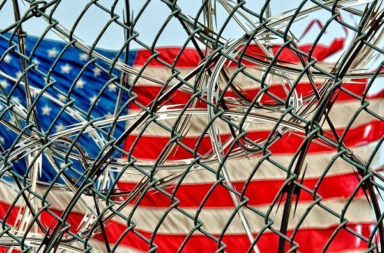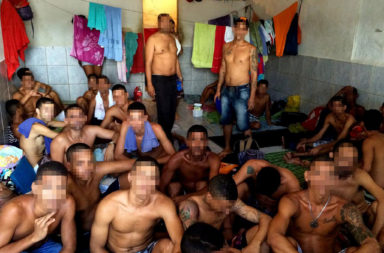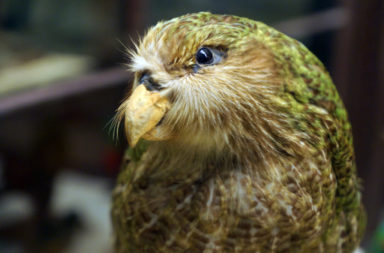It’s more commonly known as a tolerant, wealthy and scenic vacation spot but tiny New Zealand has one the highest incarceration rates per capita in the entire world. How can this be?
- “A failure of integration and education”: how New Zealand is failing its native Maori citizens.
- One in two prisoners are Maori in New Zealand, despite the fact they constitute 15 percent of the population.
- What are the factors funneling Maori men into a life of crime and imprisonment?
On a peaceful island nation, a wealthy population and reputation for fairness hide a grimmer reality facing the indigenous population of New Zealand, the Maori.
The startling statistic that Maori make up more than half of the 8,000-odd male prison population demonstrates New Zealand’s problematic relationship with its minority native population and speaks to deep divides in society.
Meet “Michael”. He is in his 20s, a Maori New Zealander and a member of a demographic over-represented in all sectors of criminal justice.
Around 34 percent of the prison population are between the ages of 20 and 29, and as Michael is serving a sentence for violent crime, he makes up part of the 37 percent of the types of offence that land people in prisons.
“A Failure of Integration and Education”
The factors driving this disproportionate rate of Maori imprisonment are shockingly high rates of child poverty for a first world country, school dropout, unemployment and breakdown of familial structures within New Zealand’s indigenous communities.
Al Jazeera was allowed access to one of the many Maori prisoners.
“The majority have problems with literacy and numeracy. The majority of offenders have some kind of drug or alcohol abuse problem, which is immediately attached to their offending behaviour. The majority of offenders will come from a dysfunctional family,” Campbell says. “By dysfunctional, I mean there will be generational unemployment. Generational substance and alcohol abuse histories. Generational problems with lack of education. Generational problems of being disconnected from wider whanau [family] or support networks. Problems with adoption. Problems being raised in social welfare families.
“They all have a history and a whakapapa [ancestry] of offending that goes right back to a very young age, and in a lot of instances, before they were born. Hence the generational problem.”
This is where the infamous biker gangs like the Mongrel Mob enter into the conversation.
Affiliation to US-style biker gangs becomes the norm for many young Maoris as a form of surrogate family. The first international chapters of Hell’s Angels were established in New Zealand and the biker gang scene has flourished in the past 50 years.
Gangs have become involved in violent crime and assaults, drug trafficking, extortion and several brutal gang rapes, courting negative media attention and further isolating members from the chance to rehabilitate back into mainstream society.
It’s a vicious circle that starts at a young age and keeps Maori out of school, employment and in jail.
But efforts are being made to break this…
The Challenges of Rehabilitation
One of the greatest challenges of integration prisoners back into society is the sad fact that only half of the Maori prisoners speak with their family at all.
Re-connecting that family bond is a priority for the New Zealand prison systemthat has established cultural units and innovative programmes to attempt to connect Maori with their families rather than the gangs that fill their place.
Building a sense of pride in Maori culture is also seen as a helpful tool for building self esteem. Prisoners are encouraged to get back in touch with their cultural ancestry by learning traditions such as the Haka, Moari language and traditional arts and crafting activities.
Trends are not irreversible or inevitable but the prevalent trend that puts young Maoris in prisons or lives of crime is one that has to be addressed by New Zealand if it has any hope of putting to rights a history of neglect and subtle discrimination.
Photo credit: Flickr





